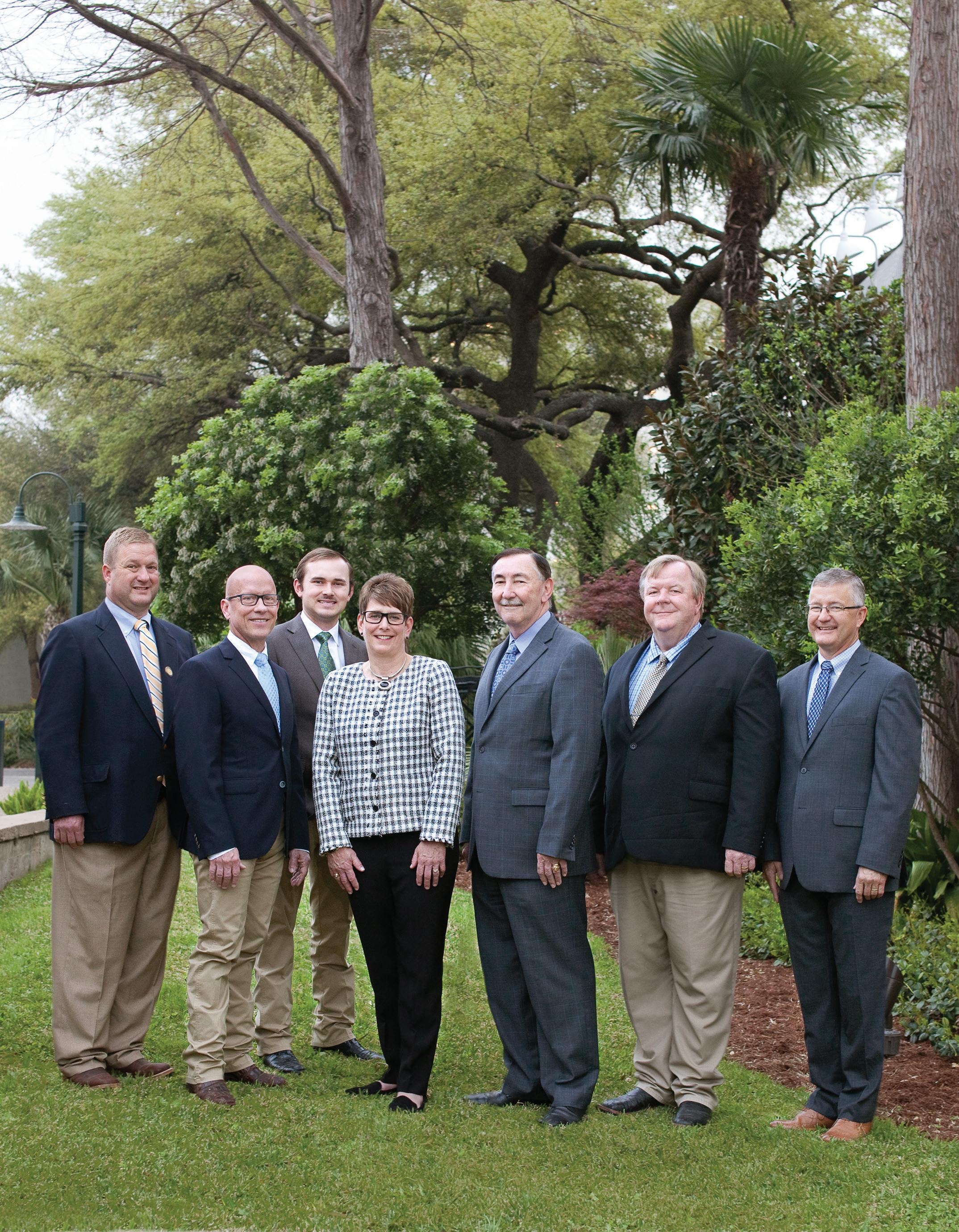
6 minute read
Building a Strong Relationship with Your Administration
BY: RUSSELL THOMAS GILMER HIGH SCHOOL AGRICULTURE SCIENCE TEACHER
Advertisement
griculture science teachers wear many hats. Sometimes you may feel overwhelmed with all the different assignments and duties you must complete as a teacher and FFA advisor. Regardless of the duty you are performing, or the hat you are wearing, building and maintaining relationships is crucial for success. A
Over the past 30 years of my career in education, I have had the opportunity to build relationships with countless students, parents, teachers and school administrators. These relationships have not only helped build a successful FFA program, but also afforded me friendships that will last a lifetime.
“The content of relationships among the adults in the school has a greater influence on the character and quality of the school and on student accomplishment than anything else,” said Roland S. Barth in the March 2006 issue of Educational Leadership
Magazine. “If the relationship between administrators and teachers are trusting, generous, helpful and cooperative, then the relationship between teachers and students, between students and students and between teachers and parents are likely to be trusting, generous, helpful, and cooperative.”
I totally agree and if you have been in education very long you know this to be true.
Let’s focus on building relationships with administrators, since the relationship between teacher and administrator is so important to a long, healthy, educational career. I believe there are three key qualities an administrator requires from their teachers, communication, trust and attitude. Now within each of these are many factors for you to be successful.
Communication
Communication is the key to building a relationship. Communicating with your administrators is just as important as communicating with your students. How do you communicate with your administrators?
First, I recommend talking with your administrators frequently; face to face is best. Texts, emails, and phone calls are impersonal and easy to misinterpret. Stop by their offices throughout the school year and summer to chat. Remember, be as good a listener as you are a speaker.
Second, make sure you talk about things other than school business. When you see your admin at lunch time, sporting events, or low stress moments, they tend to share more personal stories. Get to know them, and share your stories as well so they get to know you better.
Third, you don’t need to drown in problems or call them as a last resort for help or advice. Ask for help when you need it. They want to know how you are doing, so share with them when you are struggling.
Forth, don’t only visit your admin when there is a problem. Stop by their office to brag on your students and teaching partners, and let them know you are appreciative of the things they are doing to support you.
Lastly, your admin doesn’t want to be blindsided by a parent at an event or in their office about something you haven’t shared.
If you’re upfront and follow school policy, they’ll have your back. It can be easier to visit about our successes, but do the same with problems.
Trust
Another key to establishing a good relationship with administrators is building trust. Administrators need to trust their teachers. Gaining the trust of someone can take time, but when it happens, the relationship is naturally stronger. How do we gain their trust?
Do your job as a classroom teacher. You must teach! Striving to have quality, engaging lessons every day will go far.
You should always be professional in how you dress, how you speak, in the classroom, at FFA events, and at school and community activities. You represent the district, and the administrators will trust a professional.
Just be honest. Regaining your administration’s trust after lying or stretching the truth is hard.
Read your policy manual to guarantee you are following school rules and polices, and make sure you are briefed in all areas.
Being a part of the school, not just a teacher in the ag building, is a way to demonstrate that you are a team player.
You should always be willing to learn. Learning means you are growing, which is always a good thing.
You should remain open and willing to change. This will show your growth to your administrator.
When your administrators trust you, your relationship will jump by leaps and bounds.
Attitude
Finally, the last key to building relationships with your administration is attitude. Winston Churchill may have said it best, “Attitude is a little thing that makes a big difference.” How true is that statement in all areas of our lives! You probably teach your students about attitude and how it can affect their outcome. So let us practice what we preach. How do you have a positive attitude?
It can be a challenge, but focusing on the positive in your life and trying to see the good in things is important. Some things I have found helpful in cultivating a positive attitude are reading inspirational stories, quotes, or the bible. Spending time with close friends and loved ones is important in maintaining a positive attitude while preventing burn out. Don’t be afraid to relax when you get the chance! Participating in a hobby can help whether its fishing, hunting, exercising, etc.
These are just a few things we can do to have a positive attitude. Your attitude will carry over to the classroom, activities and with your relationships.
To wrap up, the difference between having a good year and an incredible year at school is dependent on the relationship you have with your administrators. If you want to have an incredible year, remember to keep the lines of communication open, present yourself as trustworthy, and keep a positive attitude. These few steps can make all the difference!
JENNIFER JACKSON WYLIE HIGH SCHOOL TENURE: 14 YEARS
WHY DO YOU TEACH AG?
I teach ag for a lot of reasons! I had a really great experience with FFA and ag in high school and loved showing livestock, which is what made me want to teach ag. I enjoy working with my students every day; they are by far the best part of my job. I love the content of the courses I teach, and I love that I’ve learned so much during my time in the classroom. Even though it’s a lot of work, I enjoy planning my courses and trying to find great new projects and activities.
WHAT IS YOUR FAVORITE FFA MEMORY?
My favorite FFA memory is being on a bus headed home from an area contest and turning around to see three of my students with tears in their eyes because they had finally qualified for state in poultry judging. I’m not sure why this is the memory that sticks out. Those students were some of the best and they had been working so hard. The amount of pride I felt when I saw how excited they were still causes me to be a little emotional when I think about it.

WHY DO YOU BELIEVE THAT AG EDUCATION IS SO IMPORTANT?
Agriculture is the foundation of everything we do; it literally feeds the world. With so many technological advancements and with so many misconceptions out there I think a lot of people take the impact of agriculture for granted - like it’s going away or somehow less important. We have the distinct honor of advocating for its importance, clearing up some of the misconceptions, and finding the future stakeholders in the industry. I have former students in vet school, traveling the world, teaching ag, and several in college earning degrees in agriculture. When you consider our impact from that perspective, it’s a really cool thing.

Fresh Country Supports the VATAT with a Annual Donation!










